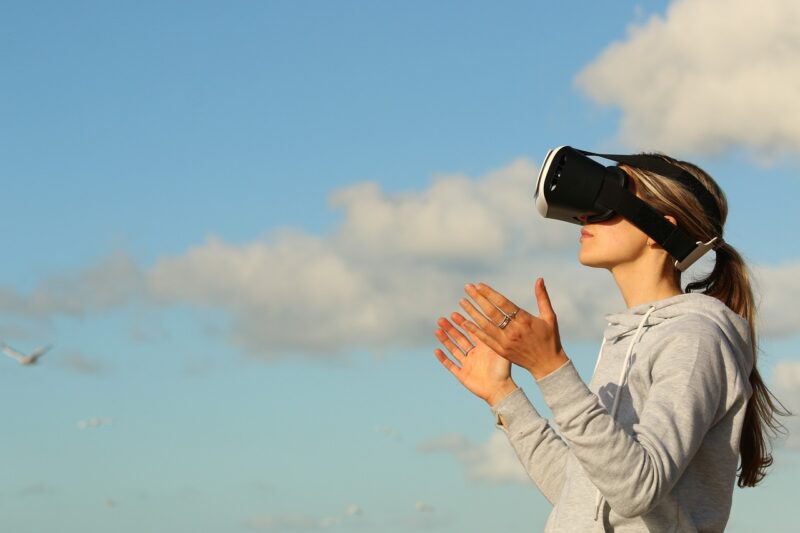How Reality TV Shaped the 2000s: The Rise of Shows That Defined a Generation
November 12, 2024

The 2000s marked a pivotal era in television history, primarily propelled by the explosive rise of reality TV. These unscripted programs brought a new dynamic to the small screen, offering audiences a glimpse into authentic human experiences and, often, bizarre circumstances. Reality TV redefined entertainment, becoming a significant cultural phenomenon and altering viewer expectations. In this article, we will explore how reality TV shaped the 2000s and the lasting impact it continues to have on contemporary media.
1. The Genesis of Reality TV: A Look Back
Though various iterations of reality television existed prior to the 2000s, the genre truly erupted into the mainstream during this decade. Shows like “Survivor,” which premiered in 2000, set the framework for reality competitions, combining elements of strategy, social gameplay, and human emotion. This groundbreaking format not only captivated audiences but also led to numerous spin-offs and imitators across networks.
Reality TV’s roots can be traced back to earlier shows, including documentary-style programming and game shows, but the 2000s helped solidify its identity. The blend of social interaction, challenges, and unpredictable outcomes engaged viewers, leading to soaring ratings and a new breed of celebrity.
2. Groundbreaking Reality Shows That Defined the Era
The early 2000s gave rise to a plethora of reality shows across a variety of genres. Each unique in format, they contributed to the richness of reality TV’s narrative tapestry:
- “The Osbournes” (2002-2005): This show provided an inside look into the chaotic family life of rock legend Ozzy Osbourne, garnering immense popularity and sparking discussions about celebrity culture and family dynamics.
- “American Idol” (2002-2016): Pioneering the talent competition format, “Idol” not only launched the careers of numerous artists but also showcased the emotional struggles and triumphs of contestants, making stars out of ordinary individuals.
- “The Real World” (1992-present): While it began airing in 1992, its influence peaked in the 2000s as it paved the way for subsequent reality dramas. The geographical and cultural diversity of the cast provided a platform for discussing relevant social issues.
- “Laguna Beach: The Real Orange County” (2004-2006): This series offered a dramatized slice of life of affluent teens, igniting a new genre of reality, dubbed “reality soap operas.”
- “The Apprentice” (2004-2017): Featuring the now-former President Donald Trump, “The Apprentice” highlighted corporate culture in a competitive environment, introducing a different kind of reality star to the television landscape.
These shows didn’t just draw in viewers; they sparked cultural dialogues, influencing everything from fashion trends to social norms.
3. Reality TV’s Impact on Celebrity Culture
With the rise of reality TV, a new breed of celebrity emerged—one that didn’t require traditional paths like film or music. Reality stars became household names, with many enjoying lucrative branding deals and spin-off shows.
Some notable examples include:
- Kim Kardashian: Gaining fame through “Keeping Up with the Kardashians” (2007-present), Kim’s rise epitomizes how reality TV can transform individuals into global icons, subsequently influencing beauty standards, fashion, and lifestyle trends.
- The Situation: Mike Sorrentino from “Jersey Shore” (2009-2012) became a relatable figure, showcasing the escapades of young adults navigating life in an appealing but chaotic setting, which further popularized both the show and reality stars in the mainstream media.
- Rachel Zoe: As a celebrity stylist featured in her own reality series, she represented the fashion industry, managing A-list clients and balancing personal challenges, inspiring viewers in the process.
Reality TV stars became more than just characters; they turned into influencers, shaping public perception and consumer behavior through social media engagement and personal branding.
4. Cultural Reflections and Critique
The initial draw of reality TV was the inherent drama and relatable content. Still, many shows also served as commentaries on societal dynamics:
- Social Issues: Programs like “The Real World” tackled critical topics such as racism, sexuality, and mental health, fostering an environment of discussion and awareness among viewers.
- Consumerism: Many reality programs showcased extravagant lifestyles and materialism, prompting critiques regarding the glorification of wealth and success based on superficial standards.
- Gender Dynamics: Shows like “The Bachelor” faced scrutiny for the depiction of romance and relationships, often reinforcing stereotypes about gender roles and expectations in dating contexts.
These reflections sometimes generated backlash against the genre, leading to critiques regarding authenticity, manipulation, and ethical standards. Nonetheless, they highlighted the complex relationship between media representations and societal perceptions.
5. The Evolution of Reality TV Beyond the 2000s
Reality TV didn’t just thrive in the 2000s; it set the stage for innovative formats and adaptations well into the next decade and beyond. In a rapidly changing media landscape, reality TV has expanded to include online platforms like YouTube and streaming services, creating new opportunities for creators and audiences. Integrating social media has changed how viewers interact with programs and celebrities, leading to further blurring of reality and fiction.
Programmatic shifts toward competition-based content or hybrid formats, combining elements of scripted and unscripted shows, have added new dimensions to the genre. The success of global formats reveals reality TV’s universal appeal, transcending borders while adapting to regional cultural contexts.
As the genre continues to evolve, it remains seated at the intersection of culture, social commentary, and entertainment.
6. Conclusion: The Lasting Influence of Reality TV
Undoubtedly, reality TV has left an indelible mark on 2000s pop culture. Beyond merely entertainment, it transformed media consumption and ignited significant discussions surrounding authenticity, representation, and celebrity. As the genre continues to adapt and inspire a new generation, it is essential to recognize and reflect on its profound influence. Reality TV has redefined the television landscape, evolving into a powerful reflection of society, offering gratification, critique, and, ultimately, a shared human experience.







